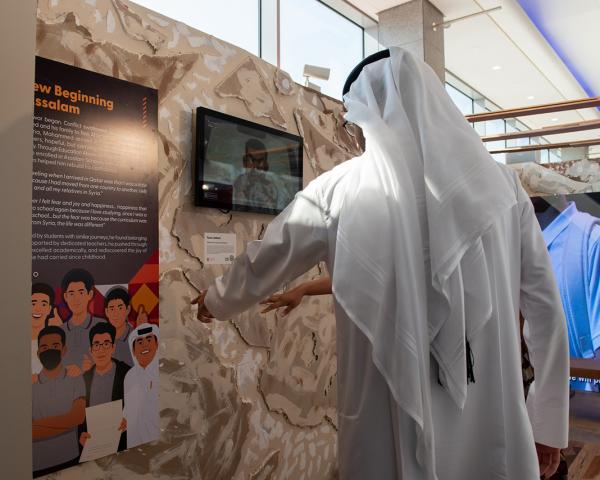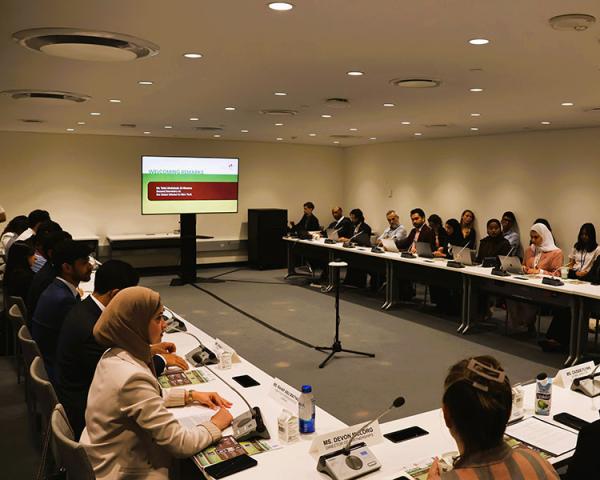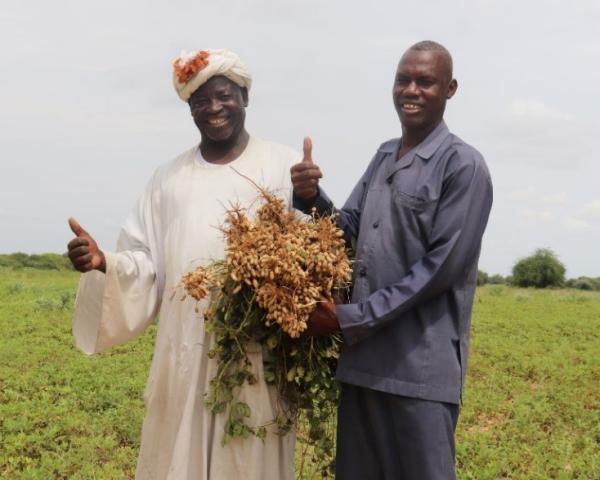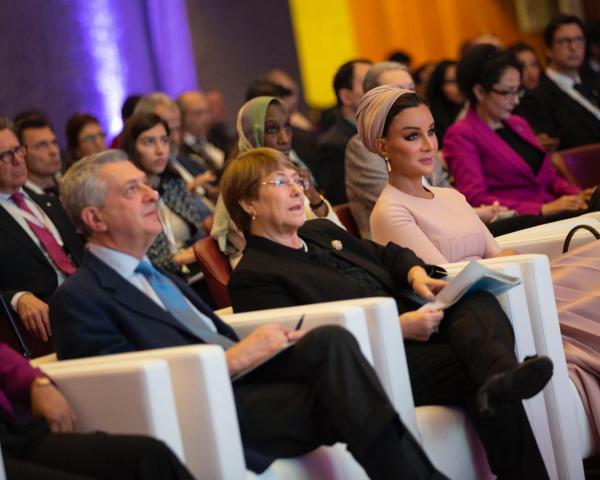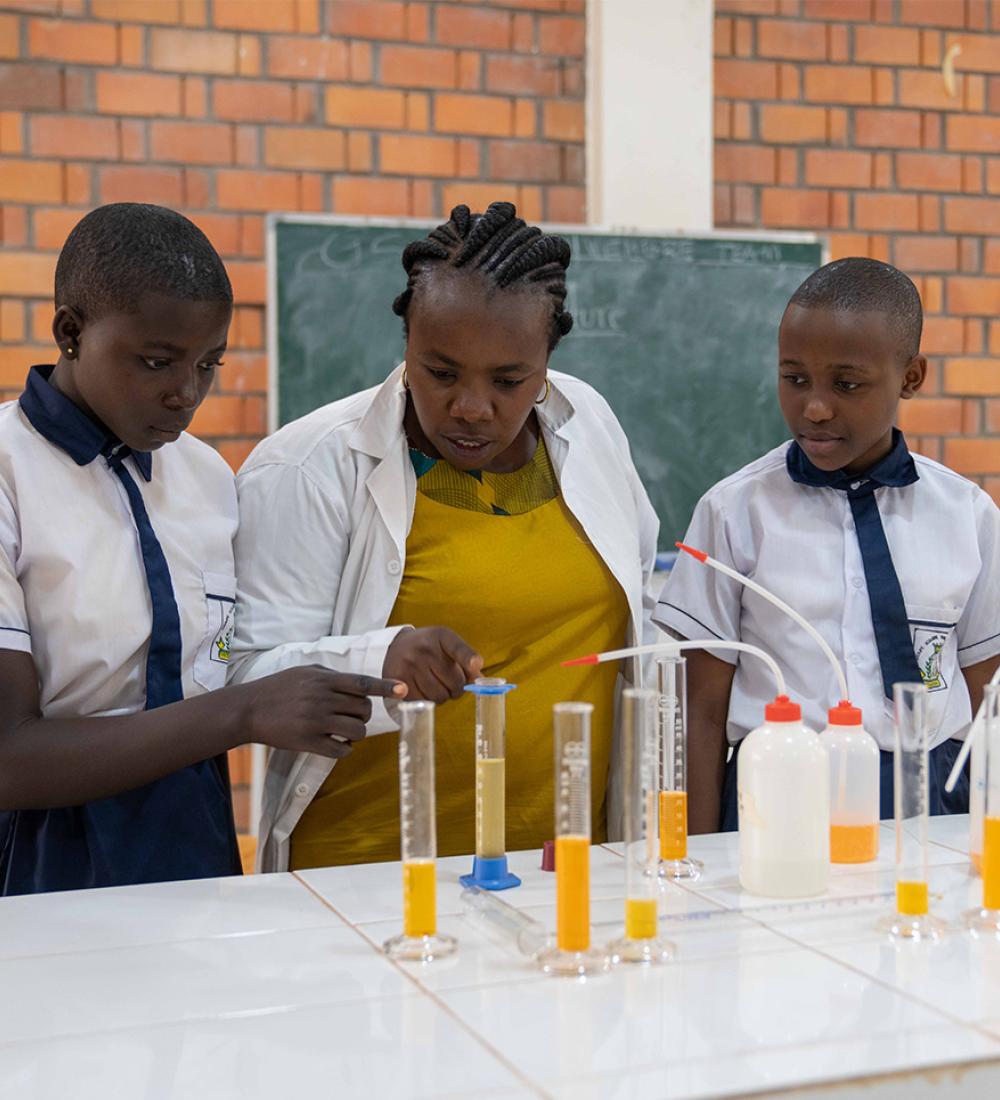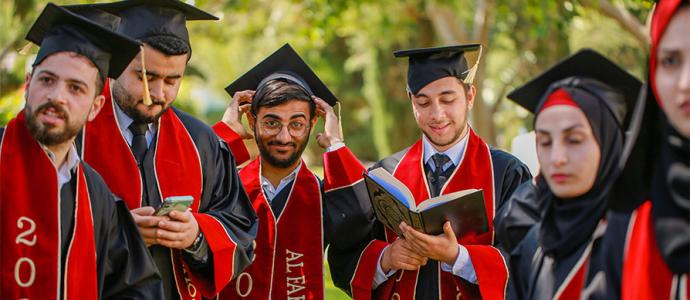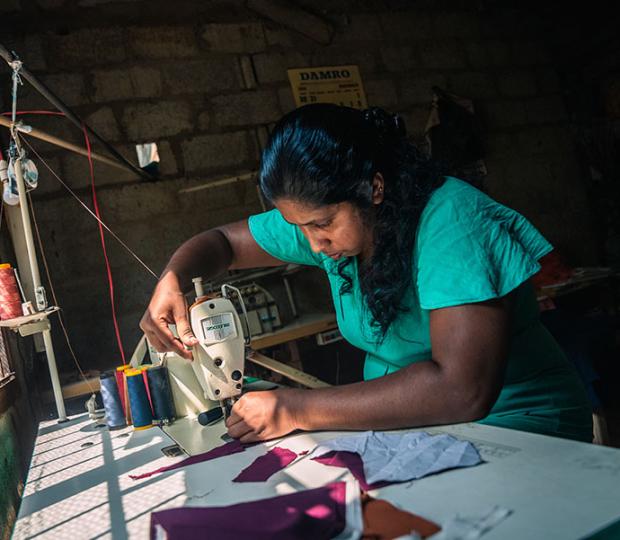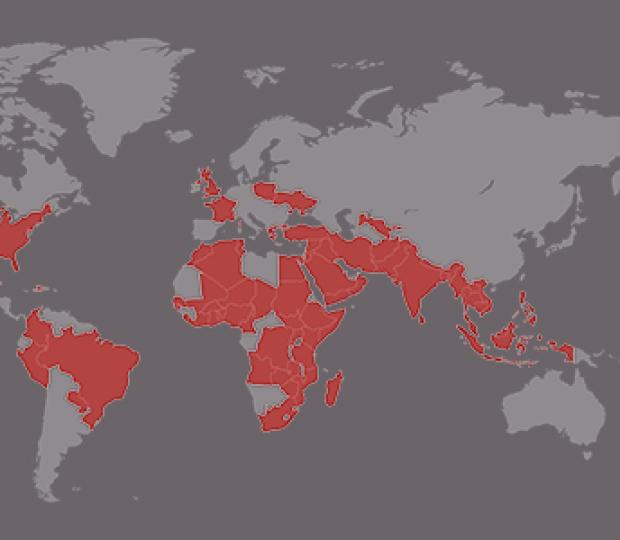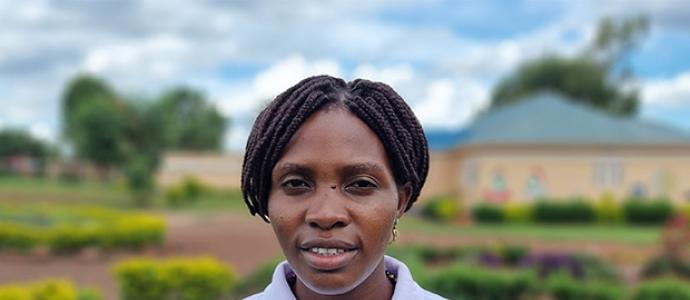An Introspective Look: A Deep Dive into Youth Economic Empowerment Programming
A Strategic Roundtable Organized by Education Above All Foundation (EAA) in Collaboration with International Labour Organization (ILO)
4 November 2025 | 13:15–14:30
Location: Doha, Qatar | Room 7, Qatar National Convention Centre (QNCC)
Overview
In line with the zero draft of the Political Declaration of the Second World Summit for Social Development, three core themes of social development have been identified as priority, interrelated, and mutually reinforcing areas, namely these are: poverty eradication, full and productive employment and decent work for all, and social integration. Since 2008, Silatech, a program of Education Above All (EAA) Foundation, has been forging global partnerships, such as with the ILO Decent Jobs for Youth Initiative, to identify sustainable pathways for youth economic empowerment in the Arab region and around the world. Throughout years of programmatic development and implementation with leading partners working in the youth employability and employment space, there have been a plethora of learnings, best practices, and challenges. Each presenting a unique perspective on youth livelihood programming that requires further scrutiny and examination. Now more than ever, when the world’s young are being impacted by a multitude of global shifts, including the fast technological changes and rapid advancements in artificial intelligence (AI), climate change, shifting political global dynamics, youth have an uncertain educational and economic future. What holds today may significantly shift at an unknown and unprecedented pace, altering the learning and livelihood pathways that young people have once envisioned for themselves. As practitioners in this space, it is incumbent on us to engage in a rigorous process of review, reflection, readjustment, and rework in order to meet young people where they are now and in the near future.
Objective
This roundtable will:
- Convene leading institutions working in the youth economic empowerment space to critically examine the effectiveness of the field, considering the commitments set forth in the Second World Summit’s Political Declaration. Zoom in on examples from Silatech, ILO, and other implementing partners that have a niche focus on economic empowerment
- Analyse key trends, successes, and limitations in youth economic empowerment programming in different geographic contexts and how they have contributed to, or limited implementation towards the abovementioned commitments
- Based on these trends, identify gaps, systemic barriers, and pain points in current approaches, on programmatic and policy levels, and identify opportunities for improvement and responsive innovation, especially in line with commitments of the Second World Summit and priorities identified by EAA and ILO
- Highlight key youth voices to share their raw perspective on the strengths, limitations, and opportunities for these programs
- Highlight key private sector voices to share opportunities and pitfalls of development-driven employability and employment programs
- Identify tangible recommendations for the international community to create more relevant, effective, and responsive programming
Expected Outcome:
Publish a joint post-roundtable briefing of recommendations to be circulated to partner organisations and continue discussions in high-level dialogues and convenings in alignment with commitments set forth in the Political Declaration.
Learning for Climate Resilience: Integrated Pathways for Poverty Eradication, Jobs & Inclusion
EAA Foundation, Silver Lining for the Needy Initiative (SNLI), UNDP, UNICEF, Commission on the Status of Women, and the Permanent Mission of The Gambia to the UN
November 5 2025 | 11:30–12:45
Location: Doha, Qatar | Room 5, Qatar National Convention Centre (QNCC)
Overview
As the world faces intensifying climate crises, poverty, and exclusion, education is an essential enabler of human resilience, sustainable livelihoods, and social mobility. Marginalised youth and women, especially in fragile and climate-affected contexts, often lack access to quality, relevant education and pathways to green jobs.
This high-level panel discussion, a collaboration between the Education Above All Foundation (EAA) and the Silver Lining for the Needy Initiative (SLNI), in partnership with UNICEF, UNDP, the Commission on the Status of Women and the Permanent Mission of the State of The Gambia to the United Nations, will feature high-level leaders, grassroots practitioners, and youth voices, discussing these interlinked issues and showcasing community-driven models that are transforming lives and building pathways for sustainable development.
Objectives
This high-level discussion will:
- Showcase integrated education models, presenting SLNI’s literacy and vocational training and EAA Foundation’s Education for Climate Action initiatives as replicable and scalable approaches.
- Highlight the education-climate nexus, demonstrating how climate-resilient education reduces poverty, generates jobs, and fosters social inclusion.
- Elevate youth and women’s leadership by amplifying the experiences and solutions of grassroots leaders and young changemakers.
- Promote innovation by exploring how AI, digital learning, and EdTech can expand access to quality education in fragile and climate-affected contexts.
- Foster partnerships by identifying joint financing, policy, and programming pathways to scale integrated models across regions.
- Align with the Sustainable Development Goals, advancing SDGs 1 (No Poverty), 4 (Quality Education), 5 (Gender Equality), 8 (Decent Work), 10 (Reduced Inequalities), and 13 (Climate Action).
Call to Action
- Practical Recommendations: Policy and programmatic recommendations for scaling climate-resilient education and livelihoods.
- Actionable Steps: For governments, donors, and agencies to invest in integrated approaches.
- Strengthened Alliances: Partnerships among governments, UN agencies and NGOs
From Silos to Synergy: Unlocking Education Financing Through Philanthropy
5 November 2025 | 15:00–16:15
Location: Doha, Qatar | Qatar National Convention Centre (QNCC)
Overview
Philanthropy has emerged as a vital partner in bridging the global education financing gap. With millions of children still out of school and public budgets under strain, innovative collaboration between foundations, governments, and development institutions is urgently needed. Philanthropic capital, when combined with public and private financing, can de-risk investments, unlock new co-funding opportunities, and accelerate progress toward inclusive, equitable, and future-ready education systems across the Global South.
Objective
This side event will:
- Position both cross-border and domestic philanthropy in the evolving global education financing landscape by convening senior leaders from philanthropic organisations, donor governments, development finance institutions (DFIs), and multilateral development banks (MDBs) to discuss how foundations can shape inclusive, equitable, and future-ready education systems.
- Highlight the full range of philanthropic tools that can de-risk investments, co-invest, and accelerate progress toward inclusive and equitable education, drawing on new insights from the forthcoming OECD Centre on Philanthropy Private Philanthropy for Development Report.
- Catalyse innovative partnerships and investment models by showcasing locally led education finance initiatives with proven impact, amplifying successful models, and mobilising additional philanthropic capital, particularly from domestic donors, through creative funding mechanisms.
Call to Action
- Recognise philanthropy as a strategic partner in global education finance, leveraging catalytic capital, local expertise, and innovative mechanisms to support inclusive and equitable education systems.
- Use evidence from the OECD Centre on Philanthropy’s Private Philanthropy for Development Report to inform policy, guide investment, and identify scalable models for education financing.
- Strengthen Public-Private-Philanthropy Partnerships (PPPPs) to unlock and scale funding, de-risk investments, and connect global funders with locally led solutions for sustainable, system-wide impact.
Education is a Key Pillar for Poverty Eradication, Employment and Social Inclusion
6 November 2025 | 15:00–16:15
Location: Doha, Qatar | Room 103, Qatar National Convention Centre (QNCC)
Overview
Education is not just a social service; it is a strategic investment and a transformative force for sustainable development. Evidence from global research and SDG progress reviews confirms that education is a foundational driver of most other development outcomes, including health, nutrition, gender equality, employment, peace, and climate resilience.
Yet, education remains under-prioritised in social development agendas, despite its power to lift individuals out of poverty, improve livelihoods, and foster inclusive, stable societies. Especially in contexts that face systemic inequality, high unemployment, and social exclusion, education is a lifeline and a lever for personal growth and collective progress. Ignoring this reality threatens the very achievement of Agenda 2030 and the promise of social justice.
This high-level session, hosted by the Education Above All (EAA) Foundation in collaboration with UNICEF, will make the case for placing education at the heart of social development policy and financing.
Objectives
The Education Above All (EAA) Foundation session, in collaboration with UNICEF, would:
- Reaffirm education as the backbone of social development, essential for eradicating poverty, enabling employment, and fostering inclusive societies.
- Highlight the need for integrated, cross-sectoral strategies that connect education with health, protection, economic development, and peacebuilding outcomes.
- Articulate the transformative power of education and the critical link between education and employability, especially in rapidly changing labour markets shaped by technology, climate change, and demographic shifts.
Call to Action
- Call for support, in particular to the multilateral banks, to invest in education in innovative ways that encourage inclusion while not further increasing the indebtedness of the poorest countries.
- The cost of inaction is too high; now is the time to ensure every child has the opportunity to learn, grow, and thrive.






